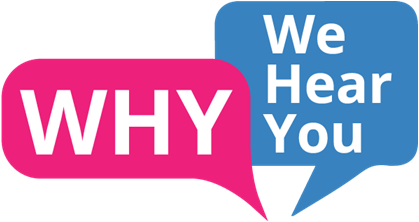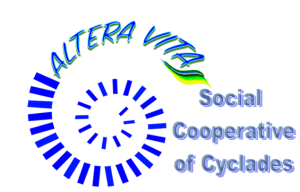ERASMUS +WHY Reflections - Course A
Section outline
-

This course is part of the Why-Project: this project aims to provide a basis for an improved culture amongst professionals as well as structures that will support democratic dialogue and youth involvement in order to promote civic participation, create participatory mechanisms, thus preventing marginalisation and its negative effects on individuals and society.
We have created a database of good practices for professional use to enhance democratic practices - Click here.
Increasingly, professionals are facing complex issues related to young people. This course will develop reflective and communication skills that are essential for transforming our society and preparing young people for the democratic challenges ahead.
-
Welcome to Course A
Duration: this course can be completed within 1 day, however, it is suggested that it is done over several weeks in order to allow time for reflection of the methods learned.
This course will focus on:
•Professional reflective practice
• Self-awareness
•Communication and collaboration
PURPOSE, DEFINITIONS & EFFECTS
Multi-faceted problems need to be viewed with multi-faceted perceptions and our responses need to be reflective, mindful of the complexity and inter-connectedness. The system of engaging, articulating, understanding, responding and assessing that we construct must allow the student to tell their own stories and not invent them on their behalf. We would need to plan for and mitigate risks to support students to be able to learn and developing. There needs to be an environment that does not blame but seeks to improve.
Running a project on encouraging young people to engage in a democracy needs to recognise and plan for the difficult journey we face.
-
Developing Skills for Democratic Participation
-
Models and Tools for Democratic Participation.
UNDERSTANDING THE PAST TO CREATE THE FUTURE
Emotional Literacy & Professional Reflective Practice
Recording of biographical events & narratives for individual identification and interaction, that can then be reflected on.
The different stages of this process are: Remembering, Acknowledgement, Identification, Interpretation, Chronology, Interaction, Pattern, Developing, Understanding, Application.
PLEASE WRITE YOUR ANSWERS IN YOUR NOTEBOOK
-
Application, Culture & Structure
APPLICATION, CULTURE & STRUCTURE
As practitioners, we must embody the skills and human qualities associated with the values and aspirations of the ongoing process of self-awareness and reflexive practice.
We need to cultivate and demonstrate human qualities such as compassion, curiosity, honesty, respect, and resilience as individual practitioners.
Furthermore, we should encourage these emerging values and behaviours in individual, group and community practice, as well as organisational and societal policy.
Good Practices
We Hear You is a project that addresses a number of current European issues. A decline in the interest in democratic processes and institutions among young people is evident, as well as increased discrimination, racism, and political and religious extremism. Furthermore, the educational systems across Europe have common problems with absenteeism and drop-out.
https://www.whywehearyou.eu/goodpractices- GOOD PRACTICE IN THE YOUTH FIELD
